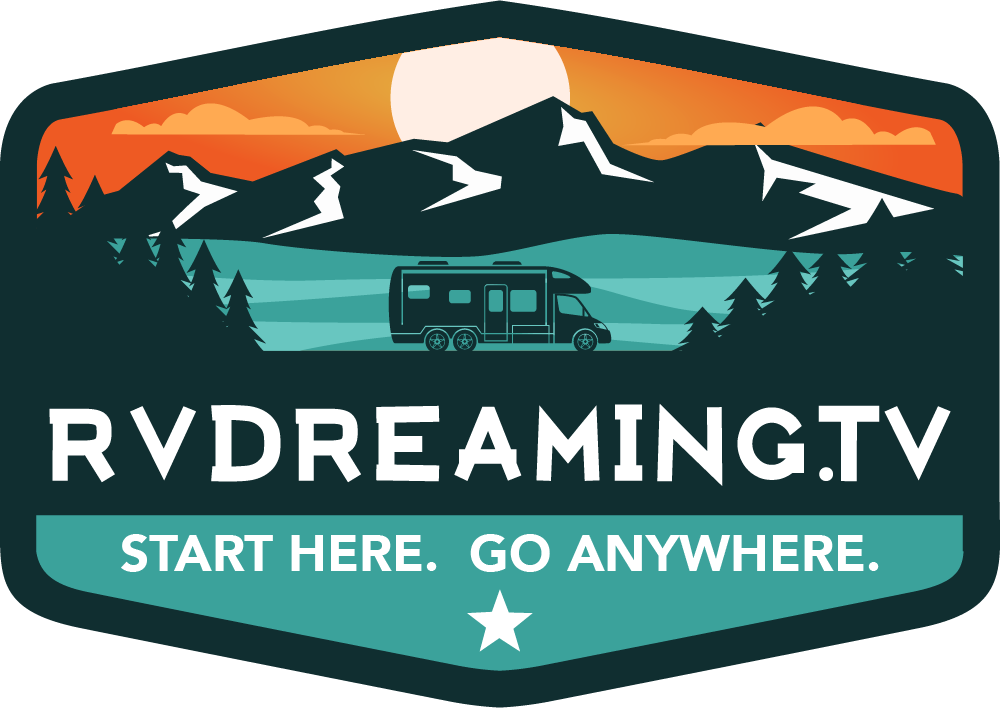
Important note:
We do our best to provide the information you’ll need regarding your taxes and full time RVing. However, each state is different, and your situation may be different from the person in the rig next to you. These items shouldn’t be considered legal or tax advice. We strongly recommend you speak with an accountant or CPA in your state of domicile.
Paying taxes as a full-time RVer
As a full-time RVer, it’s important to know how to pay your taxes. Your domicile, or permanent residence, can be tricky to determine when you live on the road. And not all income is taxable — so you need to know what to include on your tax return. This article will cover all of that, plus provide resources for full-time RVers paying taxes.
Summary
- As a full-time RVer, it’s important to know how to pay your taxes, including determining your domicile and what income is taxable.
- You have the option of filing your taxes as an individual or as a couple. You’ll need to report any expenses that you incurred while earning your income.
- If you are self-employed, you’ll need to report your business income and expenses, as well as calculate and pay your self-employment tax.
Determining your domicile as a full-time RVer
The first step is to figure out which state you consider your domicile or “home” state. Your domicile is the state where you vote, have a driver’s license, and where your car is registered. You can only have one domicile.
If you move to a new state and establish residency there, you must change your domicile to that state. Your domicile doesn’t necessarily have to be the state where you physically stay.
What income is taxable for full-time RVers
As a full-time RVer, it’s important to know what types of income are taxable.
You may have income from employment, your own business, interest, and dividends. Taxable income as a full-time RVer is similar to your stick-and-bricks home. But what may not be similar is the state in which you filed.
Income from employment is generally taxable. Examples may include wages, salaries, tips, and bonuses. However, there are some exceptions to this rule. For example, if you are a minister or member of the clergy, you may be exempt from paying taxes on your salary.
Businesses owned by full-time RVers are also generally taxable. Businesses include sole proprietorships, partnerships, S corporations, and limited liability companies.
RVers may also be subject to self-employment tax on any business income. Self-employment tax is a Social Security and Medicare tax for individuals who are self-employed.
Filing your taxes as a full-time RVer
As a Full-Time RVer, you have the option of filing your taxes as an individual or as a couple. When you file as an individual, you’ll need to report your income from all sources, including employment, businesses, interest, and dividends. You may also be subject to self-employment tax on any business income. If you file as a couple, you’ll need to combine your incomes and report them on a single return.
You’ll also need to report any expenses you incurred while earning your income. Full-time RVers may be able to write off things like travel expenses, office expenses, and supplies. You may be able to deduct some of these expenses on your tax return.
If you are self-employed, there are a few additional things that you’ll need to do when filing your taxes. Examples include reporting your business income and expenses, as well as calculating and paying your self-employment tax.
There are a few resources that can help you with filing your taxes as a full-time RVer. The IRS has a special section on its website for taxpayers who are self-employed or have other special circumstances. You can also find software that can help you with calculating and filing your taxes.
Resources for full-time RVers paying taxes
As a full-time RVer, it’s important to be aware of the resources that are available to you for paying taxes. The Internal Revenue Service (IRS) website provides general information on filing your taxes as an individual or couple. The National Association of RV Parks and Campgrounds (NARVC) website provides state-by-state tax laws specifically for RVers.
When filing your taxes, you’ll need to report any income that you earned from employment, businesses, interest, and dividends. You may also be subject to self-employment tax on any business income.
You’ll also need to report any expenses you incurred while earning your income. These may include things like travel expenses, office expenses, and supplies. You may be able to deduct some of these expenses on your tax return.
If you are self-employed, you’ll need to report your business income and expenses, as well as calculate and pay your self-employment tax. The IRS website provides guidance on how to do this.
There are a few software programs that can help you with filing your taxes as a full-time RVer. These include TurboTax and H&R Block. Both of these companies have websites that provide more information on their products and services.

















RECENT COMMENTS